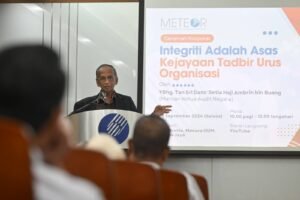The Battle Over Reinvestment Allowance

In the heart of oil palm plantations, a taxpayer found themselves embroiled in a tax dispute that could challenge the interpretation of tax law. The dispute centered around the claim for Reinvestment Allowance (RA) for cultivating oil palm during the Years of Assessment (YAs) 2010 to 2013. The taxpayer argued that oil palm cultivation fell under the category of “cultivation of fruits” as defined in Paragraph 9(cc), Schedule 7A of the Income Tax Act 1967 (ITA).
However, the Director General of Inland Revenue (DGIR) disagreed. In Notifications of Non-Chargeability (NONC) issued for these years, the DGIR rejected the claim, asserting that oil palm could not be classified as a “fruit” based on the common understanding of the term.
The Battle Over Definitions

The taxpayer, determined to secure the claim, filed appeals with the Special Commissioners of Income Tax (SCIT). “Oil palm produces oil palm fruits,” the taxpayer’s counsel contended. “Under Paragraph 9(cc), this should qualify as ‘cultivation of fruits,’ entitling us to RA.”
To further strengthen their case, the taxpayer introduced an alternative argument: “Even if oil palm is not classified as a fruit, it should qualify under the category ‘cultivation of vegetables’ as per Paragraph 9(bb).”
The DGIR, however, remained firm. “Fruits and vegetables must be understood in their common, everyday meanings, not technical or botanical definitions,” the DGIR asserted. “Although oil palm produces fruit, it is not considered a fruit in the ordinary sense of the word, nor can it be classified as a vegetable.”
Pointing to precedent cases, particularly Ketua Pengarah Hasil Dalam Negeri v. Bintulu Lumber Development Sdn Bhd, which upheld similar interpretations, the DGIR reinforced the notion that tax provisions should be construed based on the common understanding of terms. The SCIT was urged to follow these previous rulings.
The Decision

On 11 October 2024, the SCIT delivered its judgment. The taxpayer’s appeal was dismissed, and the NONCs were upheld. “The taxpayer failed to discharge the burden of proof under Paragraph 13, Schedule 5 ITA 1967,” the commissioners stated. The ruling confirmed that oil palm cultivation did not qualify for RA under either the category of “fruits” or “vegetables.”
The Lesson Learned

This case highlights a key aspect of tax law: definitions in tax legislation are rooted in common understanding rather than technical definitions. Taxpayers must carefully assess whether their activities align with the plain language and intent of tax provisions.
The lesson for businesses is clear: in tax planning, it’s crucial to understand not just the letter of the law, but also its spirit. In cases of dispute, presenting strong evidence and aligning with established precedents can make all the difference.
Ultimately, this case underscores the importance of clarity, preparation, and awareness of how courts interpret statutory language. In the world of taxation, the devil truly is in the details.






